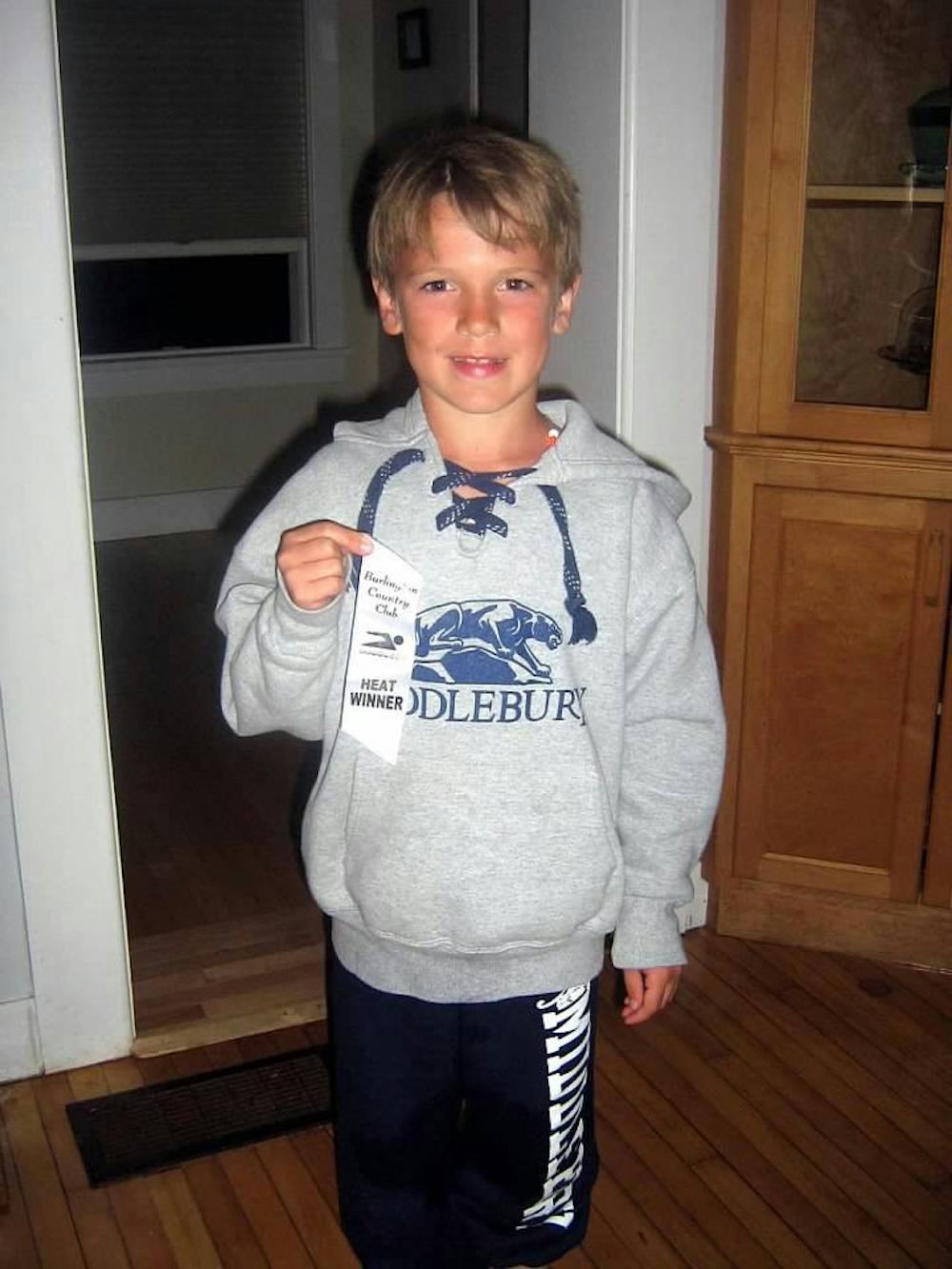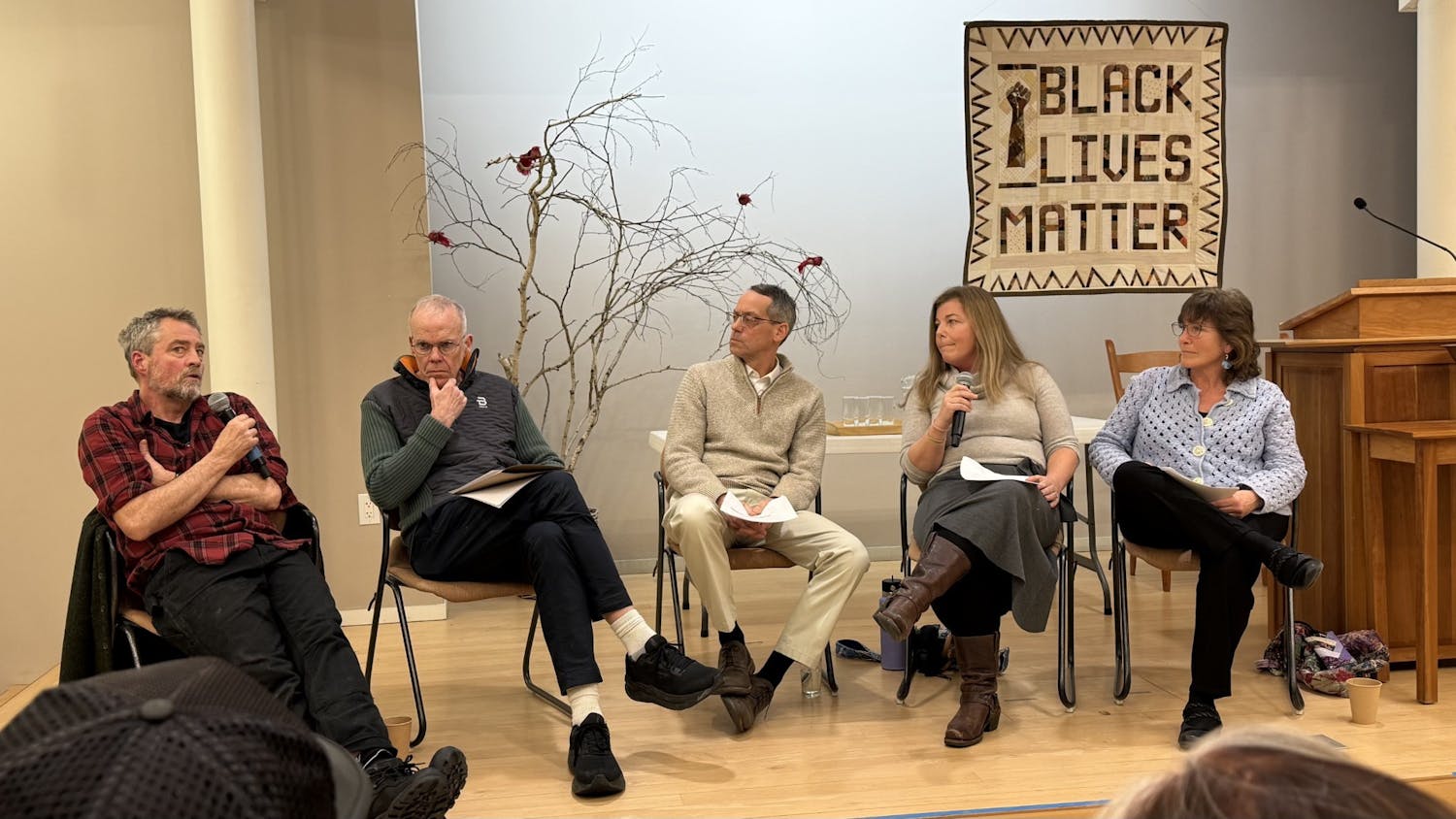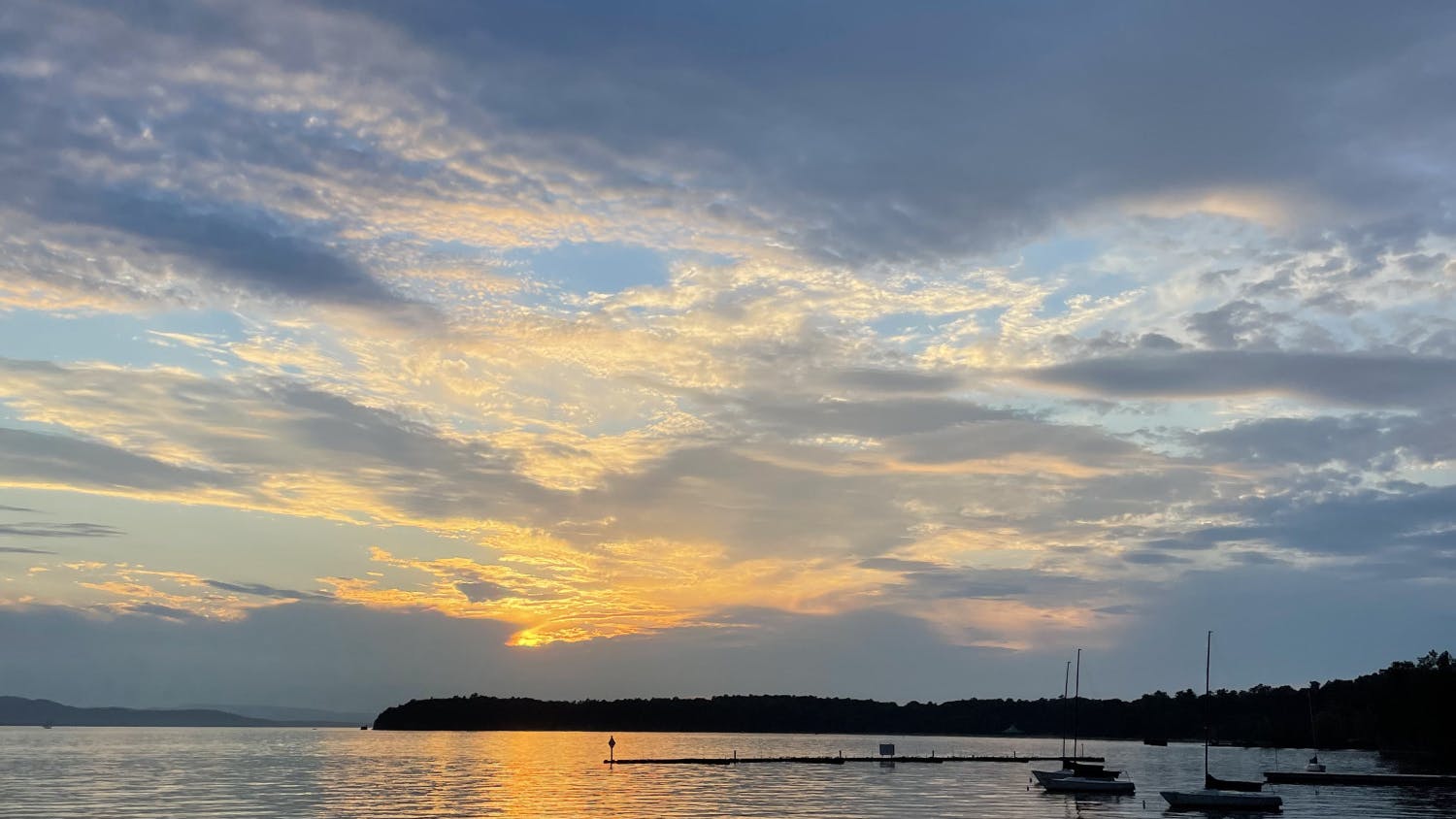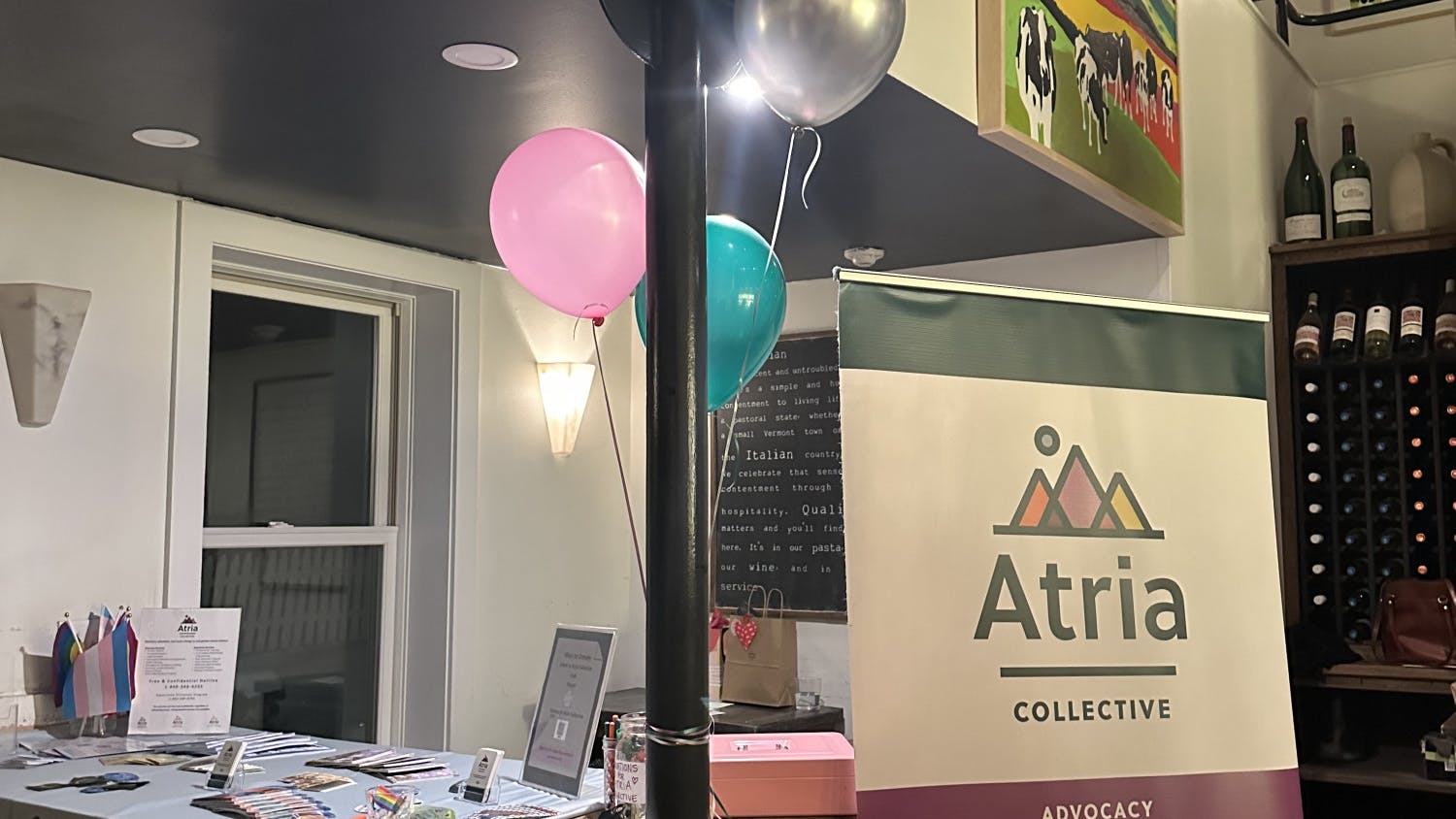What do local residents of Middlebury, often referred to on campus as “townies,” really think of Middlebury College students? Perhaps the best people to answer this question are those who are members of both groups: current Middlebury College students who also call the town home.
Alice Ganey ’24, who moved to Middlebury with her parents and older brother Henry Ganey ’22 when she was in fifth grade, acknowledged that townspeoples’ perceptions of Middlebury students can be complex. “I think there’s mixed feelings. Sometimes it’s like, ‘Oh, MiddKids think they’re above everyone.’ But oftentimes, people really love how [students] are part of the community,” she said.
Certain incidents have caused tensions to heighten, such as the vandalism at Two Brother’s in spring of 2020 and the interactions between business owners in town and students this fall before the campus was open.
Lifelong Middlebury resident Eli Miller ’21 described how these actions can have a significant impact on how the town perceives college students. “It only takes one or two students to do something dumb to do something stupid. And then everybody in the college, every student gets a bad rap or a bad look,” he said.
Kate Wallace ’23, a Cornwall native, echoed Miller’s observation that townspeople have a specific stereotype about Middlebury students. “As a member of the town, you definitely don’t have a full understanding of the different types of students that go to Middlebury. I think that it’s tempting to sort of pigeon-hole students as athletes or rich kids,” she said.
Another cause of frustration for local residents is their sense that many Middlebury students don’t fully appreciate or take pride in preserving the beauty and richness of the town that surrounds them.
Wallace commented on why residents might view students as removed and disinterested in engaging with the local community. “It’s easy to see the kids who cycle through every four years as people who don’t really care about the town. It’s harder for people who have no connection to the college to feel warmly toward students they might think are privileged and have no concern for them or their town,” she said.
These negative perceptions of the college students among Middlebury residents came to a head during late summer of 2020, when some locals voiced their opposition to the college reopening.
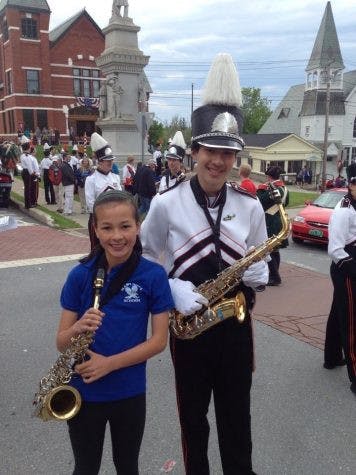
“In the fall, no one wanted the students to come back,” Alice Ganey said. “I feel like that showed a lot of distrust in us and our capability to be responsible.”
While perceptions of students may not be wholly positive, the students from town who were interviewed agreed that, overall, the town-gown relationship is a positive one. There are a number of reasons residents of Middlebury greatly value the proximity of the college campus: Students provide locals with services like tutoring, babysitting and volunteering, and community members are welcome to take advantage of the college’s educational offerings by auditing courses and attending guest lectures and performances.
“There’s a lot of assets that the college adds to the town that people really appreciate,” Alice Ganey said.
Students also create positive economic benefits by patronizing local businesses and bringing a sense of liveliness and activity into the small town. In many cases, town members regard Middlebury students as smart, hardworking individuals who have a lot to share with the town.
“I think in general, there’s a pretty positive relationship. I think I think people in town recognize — especially people who own businesses in town — really love having college students around because we just contribute so much to the local economy,” Henry Ganey said.
Miller noted that without the college, Middlebury would likely be much less distinguishable from other small Vermont towns like Vergennes or Bristol. “I mean, having the college here just brings a whole lot of life into the community,” he said.
While there are many positive aspects of the relationship between the town and the college, there remains potential for improvement. According to the students from town, greater integration and interaction between townies and students would be a positive starting point for this improvement.
Nick Wilkerson ’22, who has lived in town since he was two years old, spoke about the lack of connection with a significant portion of the town and his hopes for greater integration. Wilkerson encourages students to take the time to get to know locals and take advantage of the opportunity to learn about experiences vastly different from their own.
“The townies want to get to know the college students and all these different people that are coming from so many different walks of life,” Wilkerson said. “I think students need to start asking more questions, like ‘What is this community around us? Who are these people, and how do they go about their lives?’ I think that people just don't understand what it's like to live and grow up and work in a small town. They don't understand the idea of not going to college. They don't understand the idea of having a family business.”
Wallace agreed with Wilkerson, noting that more dialogue between college students and local residents would yield tangible benefits for both communities.
“Students can always be more involved, and I think that if they’re involved with something off campus it will be really easy to be more mindful of the community they’re living in,” Wallace said. “Students will feel more connected to the community they’re living in, and townspeople will enjoy interacting with students from the college even more.”
Most of the students interviewed, who stuck around Middlebury after high school graduation, don’t have the same intention after college. Most hope to experience living in a big city, even if they plan to return to a smaller town Northeast eventually. And all of the students said that they had initial reluctance about going to college so close to home, but eventually realized that they loved the school, and didn’t deny themselves the experience just because they had grown up here.

Ideal Dowling '22 is an Editor at Large.
She previously served as a copy editor and Local section editor.
Dowling is majoring in Political Science and minoring in French and History. During the summer of 2021, she worked as a consultant for the startup accelerator Aegis Ventures and as a research assistant for Professor Stanley Sloan as he worked on his book "De-Trumping U.S. Foreign Policy: Can Biden Bring America Back?" In addition to her work at The Campus, Dowling is captain of Middlebury's women's squash team and an employee at the Middlebury College Museum of Art.

